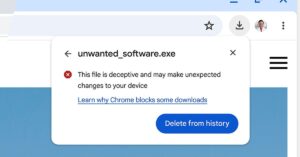The town’s leaders seem less like politicians and more like characters out of a Tim Robinson sketch. There’s councilmember Johnny “Bug” Woodward, a right-wing hippie who thinks weed development in Adelanto could lead to cures for diseases. And Jermaine Wright, an ordained pastor and restaurant owner. After both men band together and convince the rest of the council to pass weed legislation, money and greed quickly overpower any genuine desire to help Adelanto. Eventually, Mike Tyson and a Russian oligarch get involved.
Last fall, Wright was sentenced to five years in federal prison for accepting a $10,000 bribe from an undercover federal agent and trying to defraud insurers by burning down his restaurant. It was then that Weinberg — who was covering Adelanto as a freelancer — realized the story was morphing into something bigger and pitched what became Dreamtown to Crooked Media. The series had its official premiere today at Tribeca Festival.
I spoke to Weinberg about Dreamtown — as well as whether the interest in narrative podcasts is waning in 2023 — over a video call earlier this week. Here’s a lightly edited transcript of our conversation.
How did you first learn about Adelanto, the town at the centerpiece of this series? And what made you think this was a story that was meant for audio?
Well, in 2017, I was a freelance reporter. I had read some articles about […Councilmember] Bug and about Adelanto’s early transformation from a prison town into a weed town. And I thought that was kind of a fascinating idea — that a town known for its prisons was trying to fix itself. So I pitched some short feature stories to Marketplace and KCRW. I went up there, and I interviewed Bug and Jermaine, both city council members. I got some tours around the city with other folks who were involved and work there.
“So I asked her if I could follow her around with microphones. And she was like, ‘Sure.’”
It was a good […story] for audio because Bug was a compelling character, as were the other interesting people I met out there. So I finished those stories, and they aired, and I didn’t really think much about it. And then the news broke that one of the city council members that I interviewed got arrested. When I read the DOJ’s press release about what […Jermaine Wright] had done, I was like, Holy shit, I interviewed that guy! I was interviewing him when his daughter was in the room with me, and he was telling me how he was a man of God. He was having all sorts of moral conflicts about weed as it was. And so when that happened, I thought, wow, there’s probably a much bigger story to be told here.
I started doing some separate reporting on the immigration detention center there, where I was going inside the facility and interviewing detainees. I met this woman, Stevevonna Evans, who was on the city council at the time. This is a bit of a spoiler, but she ends up beating Bug in the next election when he comes up for reelection. I was kind of blown away by her. She was the most candid politician that I had ever interviewed.
And so I asked her if I could follow her around with microphones. And she was like, “Sure.” This was probably 2018. So I spent the next few years hanging around with Stevevonna and going up to the town as much as I could.
Something that struck me about the first episodes I listened to is how candid some of the sources are. As someone who’s lived in small towns before, there’s sometimes a sense you don’t want to air the dirty laundry. The environment seemed a bit different in Adelanto.
Um, yeah, I think it was a combination of two things. I think people were more candid than they would have been because I came at a very good time, which is before all the scandals broke. So I think people really wanted to brag. Like, oh, look at what we did. Everyone used to shit on us. Everyone used to say we were the crappiest town in the High Desert. And now look at us — we’re going to be rich. So I think people wanted to talk about that. After the scandal broke, I kind of just had to spend time in the town.
And so I think at first, people were like, Who is this guy from LA? But then I just kept showing up. And so they decided that I was actually interested in the town and cared what was going on. I had also done enough interviews with some of the stakeholders in the community that they would kind of refer me to other people. During council meetings, I would sit where the cameras are so that if people were watching at home — they would see me in the audience. I just kind of became a familiar face in the town after a while.
How did you go about pitching the show to Crooked Media?
I had so much tape already. I put together an eight-minute trailer sort of thing, where I kind of laid out the story. I imagined the beats of it, with people, audio, some narration, and some music. I made a pitch deck with photos and kind of a series outline for how I imagined it would go.
I pitched it to a bunch of people, but Crooked seemed to be the best partner and seemed to understand what I wanted to do with it. I didn’t want it to be a true-crime story. I wanted it to be more of a portrait of a place that happened to have a long history of scandals and corruption.
Did Bug strike you as an unreliable narrator?
He didn’t seem like it at first. But I definitely — it wasn’t just that I thought he was only wild. But I was like…really? You don’t seem to know a lot about weed… or the federal law. Because I’ve done a fair amount of reporting on the marijuana industry, and I kind of had an understanding of how difficult it was to pull off the thing he was trying to pull off. As well as the risks. He seemed to think this was just an easy thing. That […Adelanto] would legalize weed, and the companies would come. He was always saying crazy shit, like we’re going to cure diseases all over the world with weed.
I didn’t think he was nefarious or up to no good… but I was just like, alright, well, good luck.
We’re having this conversation as Tribeca kicks off its week on audio storytelling, and we’re seeing some of the field’s best work get recognition. But this same month also bought layoffs in the podcast industry. Companies like Amazon and Spotify seem to be pulling away from narrative podcasts and are looking at shows that are easier to monetize. In your view, where does that leave audio storytelling like yours?
I mean, I’m stoked to be here at Tribeca. My hope is that this is one of those things that shows people that this is an art form worth funding. I’m trying to pitch my next project, and every person is like, “We don’t really do narrative limited series podcasts anymore.” At the same time, Crooked Media is excited about how this show is doing.
I think there has to be more shows, right? Or else how […are these companies] going to make money. I don’t think there’s ever going to be as many opportunities to make […this kind of show] as there were even a year ago or two years ago. But when I look at the long view of things — I started making radio stories in 2006. And the marketplace now is just way, way better. Back then, if you wanted to do a longform story, you could get it on This American Life or Radiolab. That was it. Back then, the show that I’m making now wasn’t even a thing.
I’m not totally doom and gloom. I think people who are getting in the industry now are seeing it shrink and think it’s a nightmare. And I’m like, well, go back like 10, 15 years. But yeah, I don’t have a job lined up after this. And so I’m freaking out for sure.
As the writers strike nears the end of its second month, WGA-East’s Audio Alliance unveiled some best practices today for audio workers. While WGA members who work on non-fiction or news podcasts aren’t impacted by the Strike Rules, fiction podcasts that are covered by a WGA contract are. You can read the guidelines here. (Disclosure: The Verge’s editorial staff is also unionized with the Writers Guild of America, East.)

/cdn.vox-cdn.com/uploads/chorus_asset/file/24725405/Adelanto_KeyArt_3000x3000.jpg)




